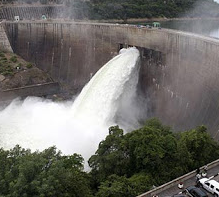Â
 China credit issues are about to jump from the back page of the WSJ to the front page, you can expect these charts to change as the Chinese credit shakes get more violent.
China credit issues are about to jump from the back page of the WSJ to the front page, you can expect these charts to change as the Chinese credit shakes get more violent.
As it looks like the Chinese will NOT be bailing out everything that goes bust, ZeroHedge have been covering this story.
Extract
We consider the trust market the most vulnerable part of the major financing channels for companies, i.e. loan, corporate bond and trust. The quality of the borrowers in the trust market tends to among the lowest. Within the trust market, collective trust products, i.e. those sold to more than one investor, tend to be risker than single trust products, i.e. those sold to a single investor. This is because investors in single trust products tend to be more substantial in resources, thus most likely more sophisticated in their risk control.
The Wind database lists close to 12,000 collective trust products, worth Rmb1.34tr, which cover roughly half of the collective trust market (Rmb2.72tr as of the end of 2013). It has reasonably good quality data series on the issuing dates and amounts raised. However, data on maturing dates are sporadic. We estimate that the average duration of the trust products is around 2 years. Based on this assumption and the issuing dates, we have mapped out a rough maturing profile of the collective trust market. As we can see from Chart 1, 2Q and 3Q this year will be the next peak maturing period for this market.
The positive spin on these possible defaults is that the overall dollar value is not that scary, however like any crack in the credit dam, a little leak can be beginning of something more serious. Remember they said sub prime in the US housing bust was not a concern and could be contained.
Charts that could be rocked south during 2014 on Chinese credit wobbles.





Investing Quote…
..”At long as a stock is acting right, and the market is right, do not be in a hurry to take profits”..
Jesse Livermore Trading Rule
..”If you have trouble imagining a 20% loss in the stock market, you shouldn’t be in stocks”..
John (Jack) Bogle

